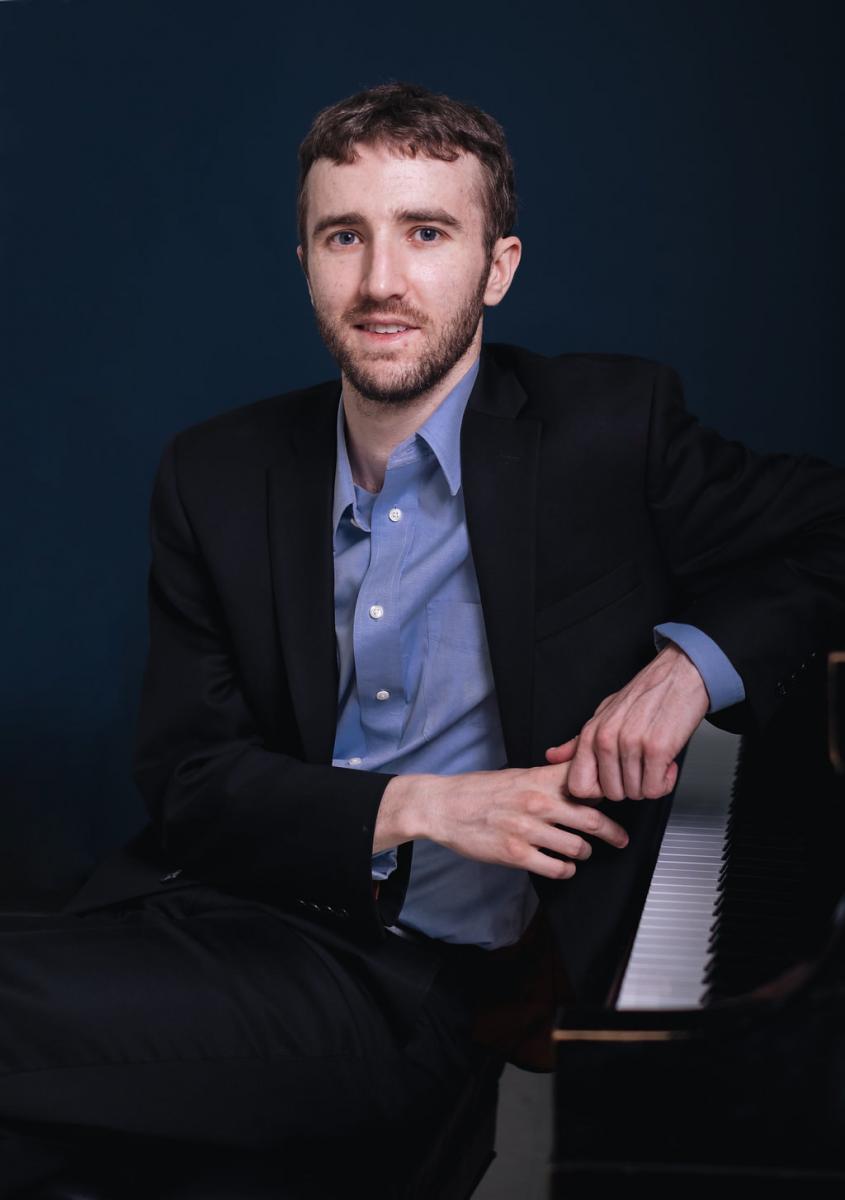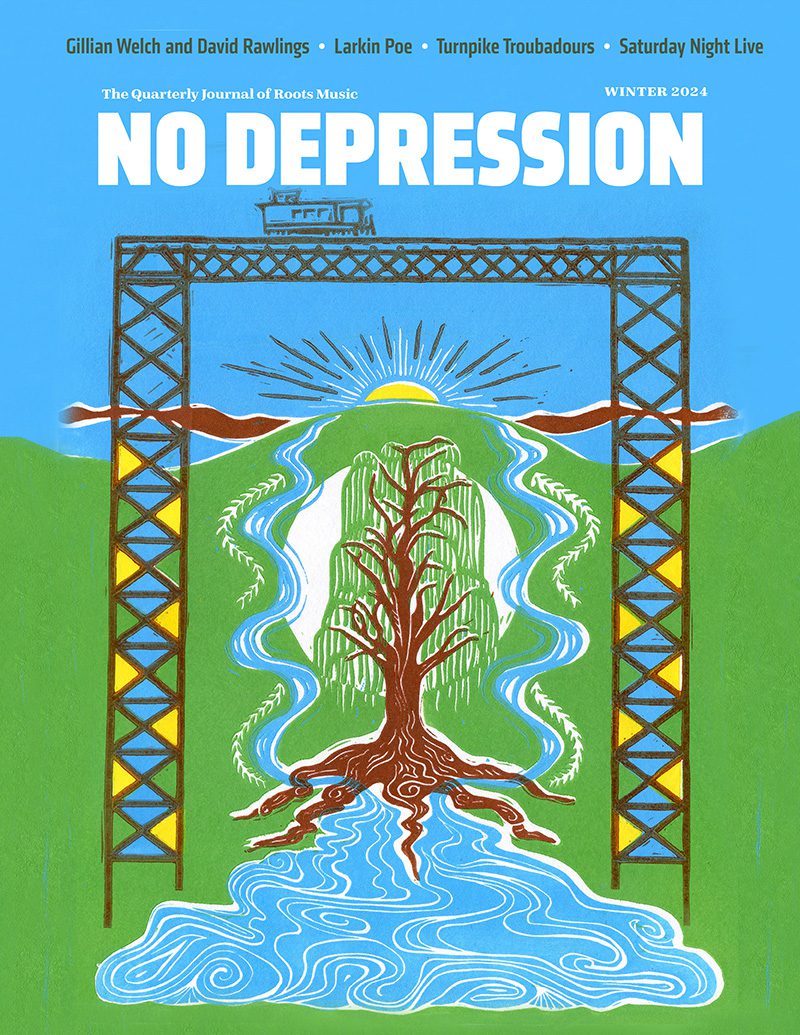Pianist Sam Post reveals ragtime roots of new album
Hailing from Washington, D.C., Sam Post is a pianist, composer, and teacher whose new album, Dizzy Days: Ragtime Piano by Sam Post, William Bolcom, and Scott Joplin, was among 2017’s most engaging releases.
Q: What is the most personal special track on Dizzy Days and why?
A: Maybe “Dusk,” which is dedicated to two of my favorite musical people, sister folk duo Ari & Mia. Ari and I go way back, to a little chamber music camp called Kinhaven when we were 14. Fast forward some years and she and her sister formed this folk band (Ari & Mia), and they write the most incredible songs, immediately likable, catchy, tuneful, but subtly complex. So on the one hand they’ve blended and bent and stretched these older traditions (Celtic, Appalachian folk, etc) without breaking them, and out of them created a sound and a style that’s so them, which is exactly what I hope I’ve done and can do with my own music. So before I was writing much, they were important role models to me in that respect. Anyway, one of my favorite songs of theirs is called “Dusk,” and I borrowed a snippet from it for the middle section of this rag by the same name.
Q: What was your introduction to music? How old were you, and how did it affect you?
A: I grew up in a very musical family and was hearing music long before I could remember much of anything. Both my parents sang in choruses, my father played guitar, banjo and French horn, and both my older sisters played piano before me. My nearest-older sister was definitely my biggest musical influence early on; I listened to all the music she listened to: Madonna, Indigo Girls, Alanis Morissette, the Bangles. I remember listening over and over to these cassette tapes that we bought at the neighborhood music store and knowing The Immaculate Collection by heart by the time I was six. Then when I was seven or eight I started playing my first Bach two-part invention and got a recording of Glenn Gould playing all the Bach inventions. That’s when I started listening to a ton of Bach and peeling off from my sister more, developing my own taste. I must have worn out that Bach inventions tape because I listened to it probably a thousand times over.
Q: What styles of music had the greatest impact on you creatively?
A: Growing up, I was most interested in the classic, great Germanic composers – Bach, Mozart, Beethoven, Schubert, Brahms, Schumann, etc. I played the entire Well-Tempered Clavier book 1 (by Bach) by the time I was 14, and in my first solo recital I played all Bach. So that style or collection of styles – obsessed with development of little musical ideas, long dramatic musical arcs, and with interplay among different musical lines – is very much a part of who I am and not going away any time soon.
But as I started writing more music, I listened more to new styles that I was a bit dismissive of growing up (perhaps I was a bit of a snob!), and that’s had a huge impact on me and is part of the reason I got into ragtime. So people like Wynton Kelly and Doreen Ketchens (jazz), Paul Schoenfield, Nikolai Kapustin, and Bernard Vallandingham (living “classical” composers), Gabriela Montero (phenomenal improviser in all kinds of styles). I also never stopped loving pop, it was just lying dormant for a while – I somewhat reluctantly admit to liking Kesha, for instance. And of course that doesn’t even get into folk music (lots of Kazakh and klezmer), bluegrass, rock, soul, blues, and so on. On the one hand it’s not like I can sit down and intentionally put those styles together in writing new music, but I think gradually one can absorb them and they end up filtering their way through into what I’m writing.
Q: How did you learn how to play piano?
A: I’ve had, and continue to have, some great teachers, along with a ton of practice and listening, of course. Lois Narvey introduced me to Bach early on. Irena Orlov was my teacher for many years, and basically a member of the family now. In the summers growing up, Kate Boyd helped me develop my technique, and in grad school, James Giles really helped me develop a much more subtle and refined sense for the sounds the piano is capable of and how to get them. More recently, I’ve had teachers/mentors in my professional life that have been brilliant: Paul Bratcher is a jazz pianist who helped me start to understand swing, and Carlos Rodriguez is a pianist who’s helped me practice improvising.
Q: What was the first song you ever wrote?
A: The first piece I ever wrote was a little fugue imitating the style of Bach that I made into an extension of the cadenza for the 1st movement of the Bach D minor concerto. After that, for quite some time I didn’t write anything (I feared—probably correctly—that everything I started to write was not so good), until I started writing little encores for performances in my early 20s. I wrote a short encore for horn trio, a little fantasy on “Silent Night” as an encore for a performance around Christmas time, and then a bigger fantasy piece based on the “Star-Spangled Banner” melody for a July 4 concert. The latter was much longer, more substantial, and still one of my most popular pieces, and that’s when I thought, hey, maybe I can actually write decent music! So I started composing more seriously.
Website:
http://www.samueljpost.com



